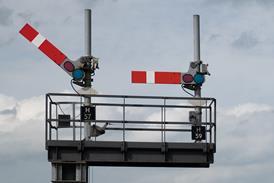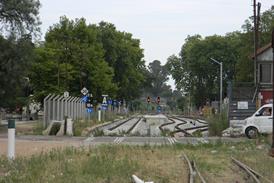IN ADDITION to simplifying the UK rail industry’s tortuous structure, a white paper published last July said responsibility for local passenger trains would be devolved to regional and local government (RG 8.04 p447).
However, the Railways Bill as published on November 25 removes the right of Passenger Transport Executives responsible for bus and rail services in England’s major conurbations to be signatories to rail franchises. Far from expanding PTE-supported rail services, which currently carry 14% of journeys on the national network, the emphasis now is on reducing them. Replacing trains with buses would cut public spending in the cities outside London.
The Department for Transport published Regulatory Impact Assessments explaining the policy options and objectives that were considered when drafting the Bill. One covers PTEs, and others deal with Network Modifications and Rail/Bus Substitution.
Unless the Bill is amended, PTEs that now specify timetables and in some cases fares will be unable to ’enter into agreements’ with train operators unless the Secretary of State consents. To co-sign a franchise, the SoS must ’invite’ the PTE to the negotiating table. But this will normally happen only when the PTE wants to enhance train services, and is able to meet the incremental cost solely from local funding sources.
Unsurprisingly, given the explosion in rail infrastructure costs since privatisation in the mid-1990s, DfT says bus operating costs in PTE areas are ’well below the operating costs of rail services.’ This demonstrates that ’there is clearly scope for a potentially significant saving through running a bus replacement service’, DfT asserts.
Procedures for closing lines and stations will be made ’simpler’ because ’the current statutory arrangements act as a barrier’ to bus substitution arrangements that DfT wants the PTEs to embrace. Under current procedures, the regional Rail Passengers’ Committee would normally hold a public hearing. This is to be replaced by ’consultations’ by ’the Secretary of State or Scottish ministers on behalf of operators making proposals and public sector funders.’
The PTE Group says the changes will transfer ’responsibility for the management and specifications of local rail services in the city regions’ from ’accountable regional transport authorities to civil servants in Whitehall.’ PTEG Chair Kieran Preston points out that ’for 30 years PTEs have used their powers in a responsible and progressive way to turn round city region rail networks. This arrangement has stood the test of time - so much so that it survived rail privatisation.’ One result is that a third of commuters into Glasgow and a fifth of those working in the centre of Birmingham now use rail.




















